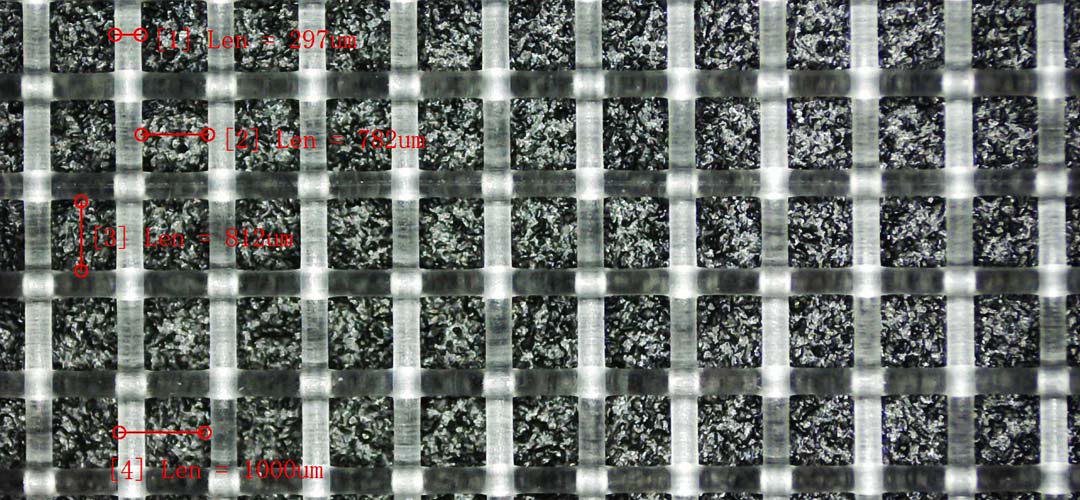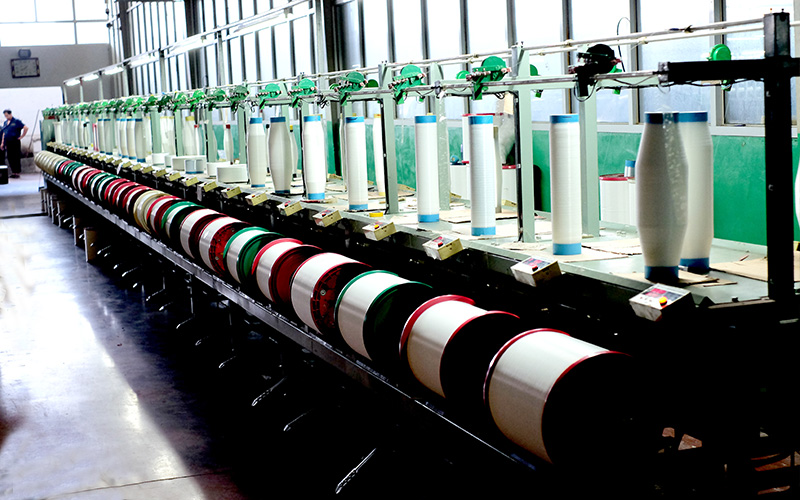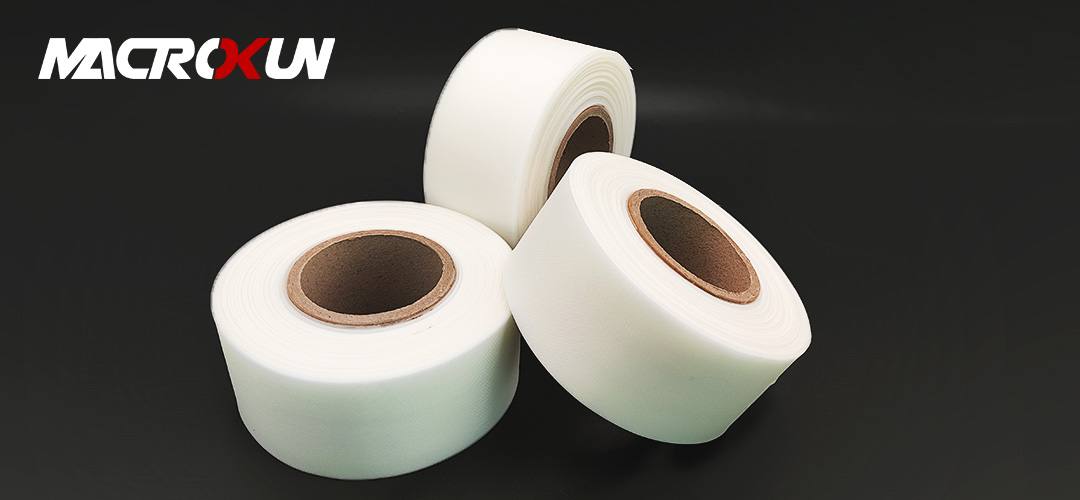Nylon mesh has become a popular choice for filter netting in various industrial applications due to its durability, flexibility, and customization options. This versatile material offers a wide range of benefits that make it an ideal solution for filtering and separating materials in industries such as food and beverage, pharmaceuticals, chemicals, and more.
One of the key advantages of using nylon mesh for filter netting is its strength and durability. Nylon is a synthetic material known for its high tensile strength, making it capable of withstanding heavy loads and harsh conditions. This durability ensures that the filter netting will last longer and perform effectively, even in demanding industrial environments.
In addition to its strength, nylon mesh is also highly flexible, allowing for easy customization to meet specific filtration requirements. Manufacturers can choose from a variety of mesh sizes, shapes, and configurations to achieve the desired level of filtration and separation. This flexibility makes nylon mesh an ideal choice for a wide range of applications, from removing impurities in liquids to separating particles in gases.
Another benefit of using nylon mesh for filter netting is its resistance to chemicals and corrosion. Nylon is inherently resistant to many chemicals, acids, and solvents, making it suitable for use in industries where exposure to harsh substances is common. This resistance ensures that the filter netting will maintain its integrity and performance over time, even when exposed to corrosive materials.
Furthermore, nylon mesh is easy to clean and maintain, reducing downtime and increasing efficiency in industrial processes. The smooth surface of nylon allows for quick and thorough cleaning, ensuring that the filter netting remains free from contaminants and blockages. This ease of maintenance helps to prolong the lifespan of the filter netting and ensures consistent performance over time.
Additionally, nylon mesh is lightweight and easy to handle, making it simple to install and replace as needed. This ease of handling reduces labor costs and downtime associated with maintenance and replacement, allowing for seamless operation in industrial settings. The lightweight nature of nylon mesh also makes it a cost-effective solution for filtration applications, as it requires less material and energy to produce and transport.
Overall, nylon mesh offers a range of benefits that make it an ideal choice for filter netting in industrial applications. Its strength, flexibility, chemical resistance, and ease of maintenance make it a reliable and efficient solution for a wide range of filtration and separation needs. By choosing nylon mesh for filter netting, industries can improve their processes, reduce costs, and enhance overall productivity.
Nylon mesh is a versatile material that is commonly used in a variety of industries for filtration purposes. Its durability, flexibility, and resistance to chemicals make it an ideal choice for filter netting applications. When it comes to choosing the right nylon mesh for your specific filtration needs, there are a few key factors to consider.
One of the most important considerations when selecting nylon mesh for filter netting is the mesh size. The mesh size refers to the number of openings per inch in the mesh material. A smaller mesh size will provide finer filtration, while a larger mesh size will allow for more flow through the material. It is important to consider the size of the particles you are trying to filter out when selecting the appropriate mesh size for your application.
Another important factor to consider when choosing nylon mesh for filter netting is the mesh weave. The weave of the mesh material can impact its strength, flexibility, and filtration capabilities. Common weave patterns for nylon mesh include plain weave, twill weave, and Dutch weave. Each weave pattern offers unique benefits and is suited for different filtration applications.
In addition to mesh size and weave, it is also important to consider the material thickness of the nylon mesh. Thicker mesh materials are more durable and can withstand higher pressures, making them ideal for heavy-duty filtration applications. Thinner mesh materials, on the other hand, are more flexible and can provide finer filtration for smaller particles.
Customization options are also available when selecting nylon mesh for filter netting. Many manufacturers offer customizable solutions to meet the specific needs of their customers. This can include custom mesh sizes, weave patterns, and material thicknesses to ensure that the nylon mesh meets the exact requirements of the filtration application.
When choosing a supplier for nylon mesh filter netting, it is important to consider the quality of the material and the reputation of the manufacturer. Look for a supplier that uses high-quality nylon materials and has a track record of providing reliable and durable products. It is also important to consider the supplier’s ability to provide custom solutions and meet specific requirements for your filtration needs.
In conclusion, nylon mesh is a versatile and durable material that is well-suited for a wide range of filtration applications. When choosing the right nylon mesh for your specific filtration needs, consider factors such as mesh size, weave pattern, material thickness, and customization options. By selecting the appropriate nylon mesh material and working with a reputable supplier, you can ensure that your filtration system operates efficiently and effectively.
Nylon mesh filter netting has become an essential component in various industries due to its versatility and effectiveness in filtering out unwanted particles. From food processing to pharmaceuticals, nylon mesh filter netting offers customizable solutions that can be tailored to meet the specific needs of each industry. In this article, we will explore some case studies highlighting successful implementations of nylon mesh filter netting in different sectors.
One industry that has benefited greatly from the use of nylon mesh filter netting is the automotive industry. In the manufacturing process of automobiles, it is crucial to ensure that the paint used on the vehicles is free from any contaminants that could affect the quality of the finish. By using nylon mesh filter netting, automotive manufacturers are able to effectively filter out any impurities in the paint, resulting in a flawless finish on the vehicles.
Another industry that has seen significant improvements with the use of nylon mesh filter netting is the pharmaceutical industry. In pharmaceutical manufacturing, it is essential to maintain strict quality control measures to ensure that the medications produced are safe and effective for consumers. Nylon mesh filter netting has been instrumental in filtering out any impurities or contaminants in the manufacturing process, ensuring that the medications meet the highest standards of quality and purity.
The food processing industry is another sector that has reaped the benefits of using nylon mesh filter netting. In food processing, it is crucial to maintain a clean and sanitary environment to prevent any contamination of the food products. Nylon mesh filter netting has been used to filter out any debris or particles that could potentially contaminate the food, ensuring that consumers receive safe and high-quality products.

One of the key advantages of nylon mesh filter netting is its customizable nature, allowing industries to tailor the mesh size and configuration to meet their specific needs. This flexibility has made nylon mesh filter netting a popular choice for industries looking for effective filtration solutions that can be adapted to different applications.
In conclusion, nylon mesh filter netting has proven to be a valuable asset for industries looking to improve their filtration processes. From automotive manufacturing to pharmaceuticals and food processing, nylon mesh filter netting offers customizable solutions that can be tailored to meet the unique needs of each industry. By implementing nylon mesh filter netting, industries can ensure that their products meet the highest standards of quality and purity, ultimately leading to improved efficiency and customer satisfaction.
Nylon mesh has long been a popular choice for industrial filtration systems due to its durability, flexibility, and resistance to chemicals and abrasion. In recent years, advancements in nylon mesh technology have led to the development of customizable solutions that offer even greater efficiency and performance for a wide range of industries.
One of the key trends in nylon mesh for filter netting is the ability to customize the mesh size, shape, and thickness to meet the specific needs of different applications. This customization allows for greater control over the filtration process, ensuring that only particles of a certain size are allowed to pass through the mesh. This level of precision is particularly important in industries such as pharmaceuticals, food and beverage, and electronics, where even the smallest contaminants can have a significant impact on product quality.

Another important trend in nylon mesh technology is the development of antimicrobial coatings that help to prevent the growth of bacteria and other microorganisms on the surface of the mesh. This not only helps to maintain the integrity of the filtration system but also ensures that the filtered product remains free from harmful contaminants. This is especially important in industries such as healthcare and food processing, where maintaining a sterile environment is crucial.
In addition to customization and antimicrobial coatings, another key trend in nylon mesh technology is the development of self-cleaning mesh that reduces the need for manual cleaning and maintenance. This type of mesh is designed to repel dirt, debris, and other contaminants, allowing for continuous filtration without the need for frequent interruptions. This not only saves time and labor costs but also helps to prolong the lifespan of the filtration system.
| Series | Mesh Size (/cm) |
Mesh Size (/inch) |
Thread Dia (um) |
Mesh Opening (um) |
Thickness (um) |
Net Weight (g/m2) |
| NL4/1950 | 4 | 10 | 550 | 1950 | 1100 | 307 |
| NL5/1500 | 5 | 13 | 500 | 1500 | 1000 | 318 |
| NL6/1267 | 6 | 15 | 400 | 1267 | 800 | 244 |
| NL7/1079 | 7 | 18 | 350 | 1079 | 700 | 218 |
| NL8/900 | 8 | 20 | 350 | 900 | 700 | 249 |
| NL9/861 | 9 | 23 | 250 | 861 | 500 | 143 |
| NL9/811 | 9 | 23 | 300 | 811 | 600 | 206 |
| NL10/750 | 10 | 25 | 250 | 750 | 500 | 159 |
| NL10/700 | 10 | 25 | 300 | 700 | 600 | 229 |
| NL12/583 | 12 | 30 | 250 | 583 | 500 | 191 |
| NL12/533 | 12 | 30 | 300 | 533 | 600 | 274 |
| NL14/514 | 14 | 36 | 200 | 514 | 340 | 142 |
| NL16/425 | 16 | 40 | 200 | 425 | 340 | 160 |
| NL20/350 | 20 | 50 | 150 | 350 | 255 | 113 |
| NL20/300 | 20 | 50 | 200 | 300 | 340 | 200 |
| NL24/267 | 24 | 60 | 150 | 267 | 255 | 135 |
| NL28/237 | 28 | 70 | 120 | 237 | 204 | 101 |
| NL30/213 | 30 | 76 | 120 | 213 | 204 | 110 |
| NL32/213 | 32 | 80 | 100 | 213 | 170 | 80 |
| NL36/178 | 36 | 90 | 100 | 178 | 170 | 90 |
| NL40/150 | 40 | 100 | 100 | 150 | 170 | 100 |
| NL43/153 | 43 | 110 | 80 | 153 | 136 | 70 |
| NL48/128 | 48 | 120 | 80 | 128 | 136 | 77 |
| NL56/119 | 56 | 140 | 60 | 119 | 102 | 50 |
| NL64/96 | 64 | 160 | 60 | 96 | 102 | 58 |
| NL72/89 | 72 | 180 | 50 | 89 | 85 | 45 |
| NL80/75 | 80 | 200 | 50 | 75 | 85 | 50 |
| NL100/57 | 100 | 250 | 43 | 57 | 73 | 46 |
| NL110/48 | 110 | 280 | 43 | 48 | 73 | 52 |
| NL120/48 | 120 | 300 | 35 | 48 | 60 | 37 |
| NL120/40 | 120 | 300 | 43 | 40 | 73 | 55 |
| NL130/42 | 130 | 330 | 35 | 42 | 60 | 40 |
| NL130/34 | 130 | 330 | 43 | 34 | 73 | 61 |
| NL140/36 | 140 | 350 | 35 | 36 | 60 | 43 |
| NL157/25 | 157 | 400 | 43 | 25 | 73 | 74 |
| NL180/20 | 180 | 450 | 39 | 20 | 66 | 68 |
| NL200/15 | 200 | 500 | 39 | 15 | 66 | 76 |
| NL220/10 | 220 | 550 | 39 | 10 | 66 | 84 |
| NL240/5 | 240 | 600 | 39 | 5 | 66 | 91 |
Furthermore, advancements in nylon mesh technology have led to the development of mesh that is more environmentally friendly and sustainable. This includes the use of recycled materials in the manufacturing process, as well as the development of mesh that is biodegradable and compostable. This is particularly important in industries that are looking to reduce their carbon footprint and minimize their impact on the environment.

Overall, the future of nylon mesh for filter netting looks bright, with continued advancements in technology leading to more efficient, customizable, and sustainable solutions for industrial filtration systems. By staying abreast of these trends and innovations, industries can ensure that their filtration systems are operating at peak performance and meeting the highest standards for quality and safety. As the demand for cleaner, safer products continues to grow, nylon mesh technology will play an increasingly important role in helping industries meet these challenges head-on.
Pre: Top Benefits of Using Micron Mesh Fabric in Industrial Settings
Next: 100um Mesh Explained: Best Practices for Filtration and Separation

MACROKUN has established long-term and stable cooperative relations with many transportation companies such as China Post, DHL, FEDEX, USPS, UPS, etc. Of course, MACROKUN can also provide air and sea transportation. The powerful logistics system enables all MACROKUN'S Printing Mesh, Filter Mesh and Filter Bags and so on to be easily and efficiently transported to any place. For quotes and inquiries, please email our sales team.





